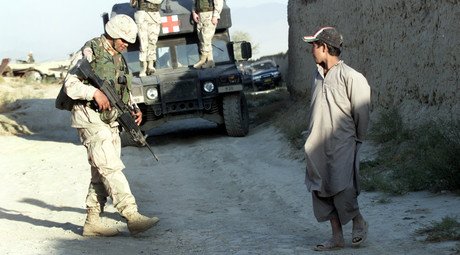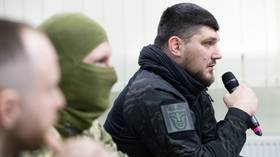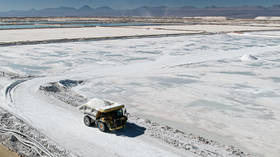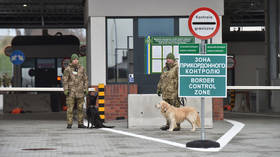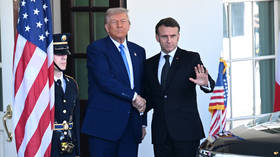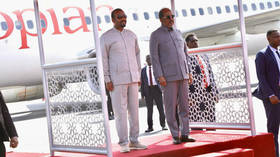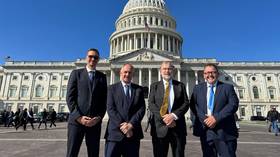US Navy accused of covering up SEAL abuse of Afghan detainees
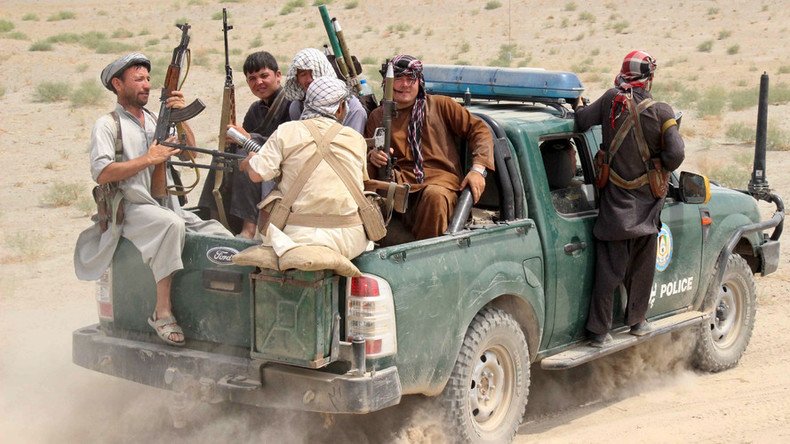
Though several US soldiers accused a SEAL team of beating and waterboarding Afghan men detained after a checkpoint bombing, their commanding officer decided not to press charges. One of the Afghans died after the torment.
The incident took place in May of 2012 at a US outpost near the village of Kalach in southern Afghanistan’s Oruzgan province. Six SEALs, as well as four Army and four Navy personnel, were at the base, which was established to help train the Afghan Local Police (ALP), according to an investigation published on Thursday in the New York Times.
After their checkpoint was bombed on the morning of May 31, killing one officer, the ALP rounded up several suspects and marched them to the outpost for interrogation. At the end of the day, one of the detainees had died from his injuries. The soldiers on the base said that three of the SEALs were responsible.
Thursday's front-page photo: Navy SEALs, a beating death and
claims of a cover-up https://t.co/uFUKdQBhZtpic.twitter.com/MdAxE7pfik
— NYT Photo (@nytimesphoto) December 17, 2015Instead of putting a stop to the ALP abuse of the detainees, three enlisted members of the SEAL team joined in, witnesses said. They kicked prisoners, fired pistols next to their heads, dropped stones on them, and stepped on their heads, according to the testimonials given to the Navy’s criminal investigators (NCIS). The NCIS report, with all the names redacted, was obtained by the Times through a freedom-of-information request.
Some of the names were revealed in the Times report, however. Petty Officers First Class David Swarts and Daniel D’Ambrosio and Petty Officer Second Class Xavier Silva were named as the SEALs who took part in the abuse. Their officer, Lieutenant Junior Grade Jason Webb, was preoccupied elsewhere on the base.
Only Silva returned the Times’ requests for comment, saying only, “If you knew what it was like on the ground, it would look different.”
Staff Sergeant David Roschak reported the abuse on June 3, after the US forces had left the Kalach outpost for the provincial capital of Tirin Kot.
“My squad is being involved in a cover-up regarding the possible killing of detainees,” Roschak wrote.
Specialist David Walker, an Army medic who was one of the witnesses in the investigation, said the case was about right and wrong. “You can’t squint hard enough to make this gray,” the Times quoted Walker as saying in an interview.
In addition to other forms of abuse, Walker and another soldier testified that they had seen one SEAL pouring water on a detainee who was lying on his back in an improvised form of waterboarding torture.
At least three of the detainees were identified by name as well: Faisal Rehmat, Muhammad Hashem, and Assadullah – all itinerant scrap collectors in their mid-20s. After failing to beat any useful information out of the men, the SEALs released the prisoners. Hashem passed away that evening, complaining of crippling pain in his abdomen.
Before they were released, the SEALs took a photo of a bloodied Hashem with a Kalashnikov rifle placed across his chest, Assadullah said.
Despite the testimonies by the Army and Navy personnel on the base, Captain Robert E. Smith, who was in charge of the SEALs based on the East Coast at the time and currently serves as a military assistant to the secretary of the Navy, decided not to press formal charges.
Instead, he called up the members of Team 2 for an internal disciplinary hearing called a “captain’s mast” in November of 2012. They only faced charges for failing to report abuse by the Afghan militia, the Times reported. Smith dismissed those charges, giving the SEALs “letters of instruction” suggesting that they improve their “leadership and decision making” skills, according to the paper.
Smith explained that the testimonies of Army and Navy personnel who witnessed the incident were “inconsistent.” Prior to the hearing, Army witnesses were summoned for a videoconference with several senior SEALs who questioned them as to the exact details of events that had taken place months before, while pressuring them to change their testimonies.
“They were more concerned with the fact I couldn’t remember how many rounds were fired, instead of why they used a weapon at all while questioning the detainees,” Sergeant Roschak said.
Originally developed by the Army’s Special Forces, the Green Berets, the ALP program was supposed to be a mainstay of the US counter-insurgency strategy in Afghanistan. While the Green Berets at Kalach would address village elders with respect, have tea with them, and try persuasion rather than threats, the SEALs that replaced them were ill-suited for the civilian outreach mission, according to the Times.
The boisterous Navy operatives quickly got bored and frustrated with the mission and amused themselves by shooting at passing trucks, lobbing grenades over the walls of the base, threatening villagers working in the fields, and hitting children in the face with candy fired from slingshots. One SEAL even fired at a kitten that had crawled underneath a shed on the base, the Times reported.
Navy SEALs at a forgotten Afghan outpost accused of savagely beating detainees, our story: https://t.co/1ZJwOGBfXppic.twitter.com/Gp0ROGEj7K
— Nicholas Kulish (@nkulish) December 17, 2015According to the locals, however, the problem went deeper. Created by the Americans to fight the Taliban, the Afghan militia preferred to boss the civilians around – robbing merchants at gunpoint, ransacking homes and beating anyone who dared resist.
The ALP in Kalach “were like dogs, and the Americans were the masters,” said Hajji Ahmad Khan Muslim Gizabe, one of the local elders. “The masters would follow behind the dogs, telling them what to do.”
Though he initially supported President Hamid Karzai’s reforms, Gizabe told the Times he could no longer back the Americans after the 2012 incident.
